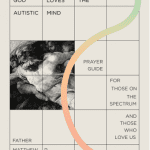*
CANON II.-If any one saith, that, in the sacred and holy sacrament of the Eucharist, the substance of the bread and wine remains conjointly with the body and blood of our Lord Jesus Christ, and denieth that wonderful and singular conversion of the whole substance of the bread into the Body, and of the whole substance of the wine into the Blood-the species Only of the bread and wine remaining-which conversion indeed the Catholic Church most aptly calls Transubstantiation; let him be anathema.
CANON III.-If any one denieth, that, in the venerable sacrament of the Eucharist, the whole Christ is contained under each species, and under every part of each species, when separated; let him be anathema.
CANON IV.-If any one saith, that, after the consecration is completed, the body and blood of our Lord Jesus Christ are not in the admirable sacrament of the Eucharist, but (are there) only during the use, whilst it is being taken, and not either before or after; and that, in the hosts, or consecrated particles, which are reserved or which remain after communion, the true Body of the Lord remaineth not; let him be anathema.
And I was also asked: “Is there any way to synthesize transubstantiation and consubstantiation or are they mutually exclusive?”
They are mutually exclusive or contradictory; however, there is some common ground. We can say that both Lutherans and Catholics believe in the Real and Substantial Presence of Jesus in the Eucharist. The problem is that the Lutherans also believe that the bread and wine remain alongside our Lord, and that is impossible to reconcile with transubstantiation, because it is partial rather than total transformation.
***
*
Practical Matters: Perhaps some of my 4,000+ free online articles (the most comprehensive “one-stop” Catholic apologetics site) or fifty books have helped you (by God’s grace) to decide to become Catholic or to return to the Church, or better understand some doctrines and why we believe them.
Or you may believe my work is worthy to support for the purpose of apologetics and evangelism in general. If so, please seriously consider a much-needed financial contribution. I’m always in need of more funds: especially monthly support. “The laborer is worthy of his wages” (1 Tim 5:18, NKJV). 1 December 2021 was my 20th anniversary as a full-time Catholic apologist, and February 2022 marked the 25th anniversary of my blog.
PayPal donations are the easiest: just send to my email address: [email protected]. You’ll see the term “Catholic Used Book Service”, which is my old side-business. To learn about the different methods of contributing, including 100% tax deduction, etc., see my page: About Catholic Apologist Dave Armstrong / Donation Information. Thanks a million from the bottom of my heart!
***
*
Summary: There is no way to synthesize Catholic transubstantiation and Lutheran consubstantiation. They’re mutually exclusive, though they do have important similarities.













